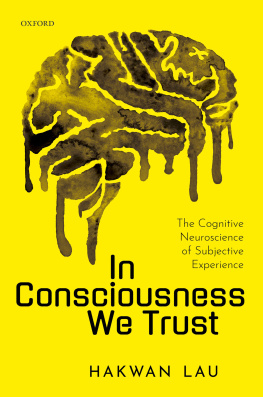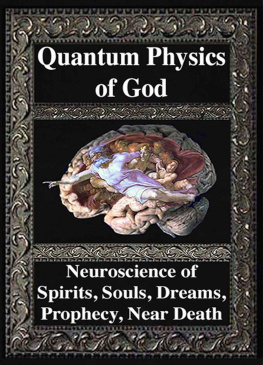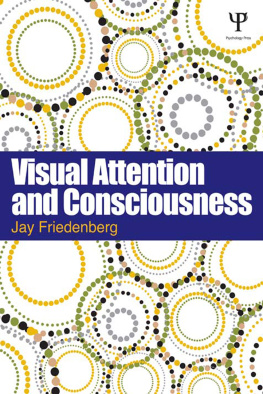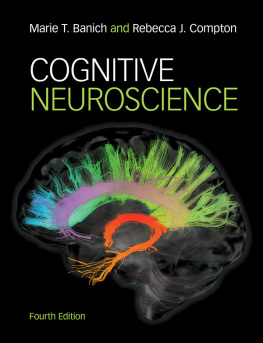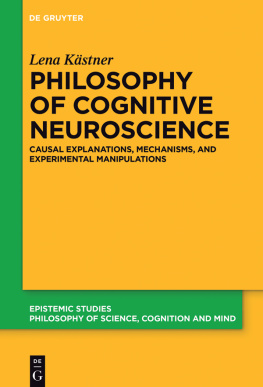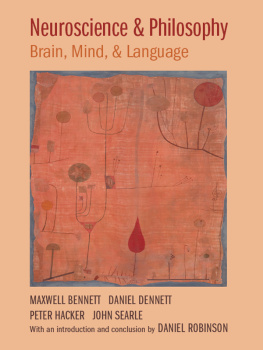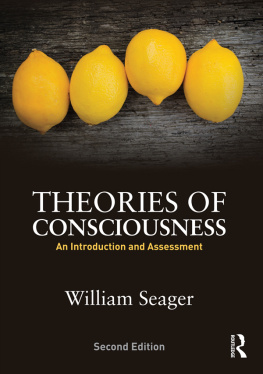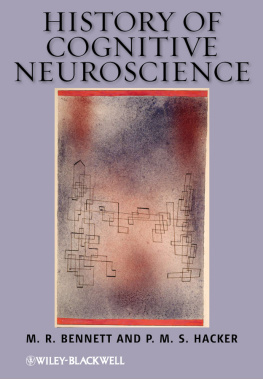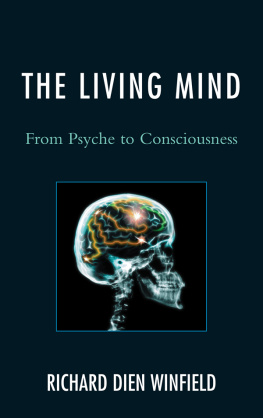In Consciousness We Trust

Great Clarendon Street, Oxford, OX2 6DP,
United Kingdom
Oxford University Press is a department of the University of Oxford. It furthers the Universitys objective of excellence in research, scholarship, and education by publishing worldwide. Oxford is a registered trade mark of Oxford University Press in the UK and in certain other countries
Hakwan Lau 2022
The moral rights of the author have been asserted
First Edition published in 2022
Impression: 1
Some rights reserved. No part of this publication may be reproduced, stored in a retrieval system, or transmitted, in any form or by any means, for commercial purposes, without the prior permission in writing of Oxford University Press, or as expressly permitted by law, by licence or under terms agreed with the appropriate reprographics rights organization.

This is an open access publication, available online and distributed under the terms of a Creative Commons Attribution Non Commercial No Derivatives 4.0 International licence (CC BY-NC-ND 4.0), a copy of which is available at http://creativecommons.org/licenses/by-nc-nd/4.0/ .
This book is freely available in an open access edition thanks to TOME (Toward an Open Monograph Ecosystem) a collaboration of the Association of American Universities, the Association of University Presses, and the Association of Research Libraries and the generous support of Arcadia, a charitable fund of Lisbet Rausing and Peter Baldwin, and the UCLA Library. Learn more at the TOME website, available at: openmonographs.org. CC BY-NC-ND 4.0 http://creativecommons.org/licenses/by-nc-nd/4.0/
Enquiries concerning reproduction outside the scope of this licence should be sent to the Rights Department, Oxford University Press, at the address above
Published in the United States of America by Oxford University Press
198 Madison Avenue, New York, NY 10016, United States of America
British Library Cataloguing in Publication Data
Data available
Library of Congress Control Number: 2021947320
ISBN 9780198856771
eISBN 9780192598806
DOI: 10.1093/oso/9780198856771.001.0001
Oxford University Press makes no representation, express or implied, that the drug dosages in this book are correct. Readers must therefore always check the product information and clinical procedures with the most up-to-date published product information and data sheets provided by the manufacturers and the most recent codes of conduct and safety regulations. The authors and the publishers do not accept responsibility or legal liability for any errors in the text or for the misuse or misapplication of material in this work. Except where otherwise stated, drug dosages and recommendations are for the non-pregnant adult who is not breast-feeding
Links to third party websites are provided by Oxford in good faith and for information only. Oxford disclaims any responsibility for the materials contained in any third party website referenced in this work.
To the truth-loving people of Hong Kong
Acknowledgments
First, I have to thank those who have taught me the most about the subject. They are my current and former students and mentees, including Brian Mansicalco, Dobromir Rahnev, Ai Koizumi, Liyan McCurdy, Yoshiaki Ko, Jorge Morale, Guillermo Solovey, Megan Peters, Vincent Taschereau-Dumouchel, Brian Odegaard, Aurelio Cortese, JD Knotts, Kiyo Miyoshi, Taylor Webb, Yujia Peng, Cody Cushing, Mouslim Cherkaoui, Raihyung Lee, Cathie So, Ben Rosenberg, and Seong Hah Cho. Youll read about some of their excellent work throughout the book.
Like Angela Clague, Matthias Michel was kind enough to read the drafts of all the chapters in this book, well before they were readable. As usual, his comments have improved the content substantially.
Of course, I also have teachers in a more formal sense. It was Chad Hansen at the University of Hong Kong, my alma mater, who first got me interested in philosophy and academia. Joe Lau at the same institution taught me how to read and write properly and planted the important seed of doubt that abstruse writing is typically anything but profound. At Oxford, Dick Passingham miraculously created a scientist out of an unruly young man.
From there, the line between mentors and friends gets blurry: Chris Frith, Joe LeDoux, Patrick Haggard, David Rosenthal, and Mitsuo Kawato taught me how to be less unwise as an academic (and as a person in general). At UCLA, Michelle Craske kindly supported my foray into clinical studies. Michele Basso and Alicia Izquierdo likewise allowed me to learn about animal models, as a late beginner.
Outside of my own affiliated institutions, Steve Fleming and Richard Brown are both good friends as well as collaborators.

